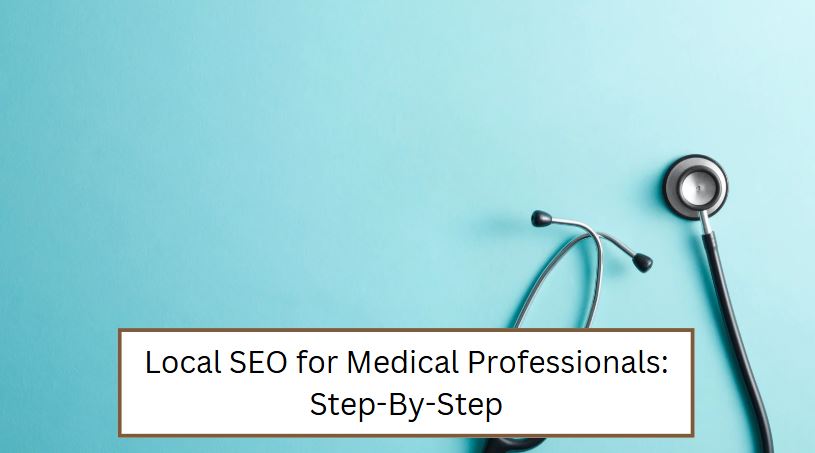From ‘what to have for dinner’ to ‘the lifespan of a house spider’ the information that is available on search engines like Google is colossal – and we often take it for granted. According to Websitesetup, there are around 1.7 billion existing websites and it’s Googles job to sift through them all to produce the most relevant ones for your search query. Google does all of this in a matter of seconds so it’s important to make it as easy as possible for Google to recognise your website over other competing websites.
Read on to find how the Google algorithm works and what you can do to become more visible on Googles search results!
The Google Algorithm
In order to understand how to improve your websites position on Googles search results, it helps to know how their algorithm actually works. Like most search engines and social media channels, Google works on a ranking system to help produce the most relevant websites to any given search query – and Google does all of this in 3 steps.
Web Crawling
Web crawlers are essentially software bots that crawl the internet discovering new pages or updated content to categorise. Very much like how a person would explore all the pages and links on a website, the crawlers do the same but a lot faster! Web crawlers gather information on photos, videos, website copy and meta tags – anything that will give it information about what the page is about.
Indexing
After the crawlers have gathered a number of URLs, they store them on a large database called an ‘index’. The URLs in the index are sorted by common keywords so that like-websites are grouped together ready to be pulled up when their keyword is mentioned in a search query. A new website can take anywhere from a few days to months to be indexed. It is only until a website has been indexed that it is in the running to be served in the search engine results so don’t be alarmed if your website doesn’t appear right away!
Ranking
Once a webpage has been indexed, it is ranked. Google uses software they call PageRank to rank each website based on a number of factors. A webpages rank determines where it will appear on the search engine results so webpages that rank higher will appear higher up. PageRank’s ranking criteria is confidential but through trial and error, we can suggest which actions the algorithm likes and which not so much.
What we know about PageRank’s criteria
The average query searcher will only pay attention to the first few results so it’s important to optimise your page with PageRank in regard to give your website the best chance at taking those top spots. So here are the most critical factors you should pay attention to in order to boost your ranking score.
- Backlinking:Backlinking is where one website links another website.
- On the whole, a website that has been backlinked many times by other websites is highly regarded by PageRank. This is because if they are being referred to a lot, it suggests that they are putting out high quality content.
- In addition, the type of website that is doing the backlinking can affect your ranking score. A website that receives a lot of backlinks from low-ranking websites will rank lower than a website that receives backlinks from high-ranking websites. This is to stop people from creating inactive websites with the sole purpose of linking to their active website to boost their ranking.
- User experience: Ultimately, googles algorithm will praise anything that enhances or improves the user’s experience. Below are 3 things you can change to enhance your users experience and increase your ranking.
- Page speed: Google knows that a slow-loading webpage equates to poor user experience, so its software is programmed to rank down slow-loading pages. High resolution images, unclean coding, and JavaScript issues are all things that can cause your webpages to load slowly.
- Site design: Make sure your website is easy to navigate. Having a clear, well placed navigation bar and a well-functioning search bar will not only make it easier for the user to navigate, but also for the web crawlers to navigate your website.
- Mobile friendliness: Your site design needs to work well on all devices including tablet, desktop, and mobile phone. When Google is crawling your website, they predominantly use the mobile version so it’s especially important to have a mobile friendly website when trying to increase your ranking score with Google.
- Meta data:Meta data is data that is embedded in a websites code. Google uses the information in meta data fields to index your webpages.
- Title and description meta:Your title and description meta data is the first thing a potential website visitor will see on the search engine results. Your title should be no longer than 60 characters and your description should act as an extension of your title offering insight into the content on your page.
- Alt text: Alt text is data that provides a text explanation of images on your webpage. As search engines can’t ‘see’ pictures, it’s a way of telling the web crawlers what the image is displaying.
- Header tags: Header tags are pieces of code inserted beside headings in text (e.g. h1, h2, h3). They not only break up your text making it more readable but also allow search engines to better interpret your text.
- Keywords: Keywords are perhaps one of the most significant factors to acknowledge when wanting to increase your Google ranking. Putting thought into what keywords your target market are likely to search can increase your website traffic tremendously.
- Organic search results: Using Google’s Keyword Planner, you can discover words or phrases related to your products/services ready to insert into your website copy and meta data.
- Paid search results: Google also offers a service where you can bid on certain Keywords in order to appear higher on the paid search results.
To Summarise
Ultimately, Google’s algorithm praises anything that enhances the users experience so as long as your website is clean, easy to navigate, and well-optimised, you’re already halfway there! You begin to really improve your Google ranking when you pair surface level optimisation with optimising content at code level. Incorporating meta data into your webpages allows crawlers to index your website more easily giving you the best chance of appearing higher up in the organic search results.
In addition, Google is constantly updating their algorithm so keeping an eye on those changes will help you stay ahead of the game. There are plenty of websites reporting algorithm changes so make sure you check in once and a while and continue to regularly update your website accordingly!




